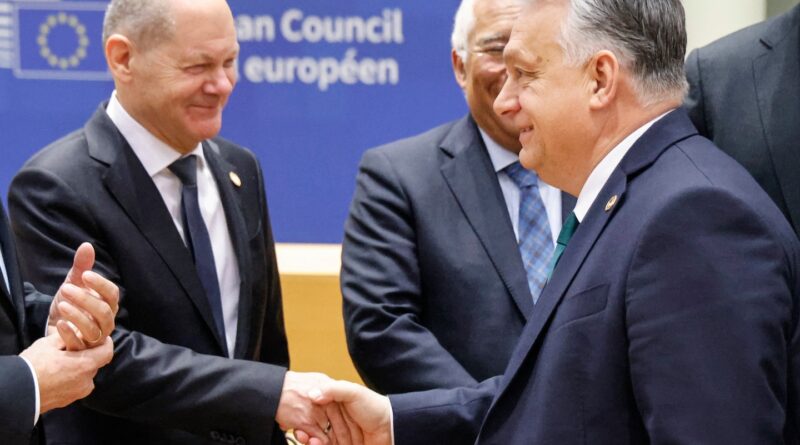European Union finally agrees to more than $50 billion in Ukraine aid
The agreement is a win for E.U. leaders who have increasingly struggled to work with Orban on key issues, particularly Russia’s war in Ukraine, and it is good news for Ukraine, which is running desperately short of both ammunition and cash.
“We have a deal,” announced European Council President Charles Michel. “This locks in steadfast, long-term, predictable funding for Ukraine.”
The E.U., he continued, “is taking leadership & responsibility in support for Ukraine; we know what is at stake.”
But weeks of fraught negotiation have spotlighted how a single strongman can disrupt the E.U., even on issues, like Russia, that many see as “existential” for the union. And it has hinted at how precarious and unpredictable long-term support for Ukraine could be.
As if to underscore the sense of uncertainty and chaos, the summit took place amid massive protest by farmers who arrived in tractors, blocked traffic and set fires in the heart of the city. They called on leaders to focus more on cost-of-living issues, including high taxes and what they see as excessive regulation from Brussels.
Hungary quickly seized the moment, posting a video of Orban meeting with farmers and aligning his cause — fighting Brussels — with theirs. “We will stand up for the voice of the people! Even if the bureaucrats in Brussels blackmail us,” he posted.
Bad blood between Brussels and Budapest is not new. For years now, Orban has clashed with E.U. officials and leaders, using his acrimony — and veto — to extract concession while playing to populist sentiment at home.
But in recent months, as he has repeatedly blocked E.U. efforts to secure stable funding for Ukraine, he seems to have crossed a new line. Fellow leaders see his latest antics as a genuine threat to European security — and are increasingly willing to talk about working around him.




